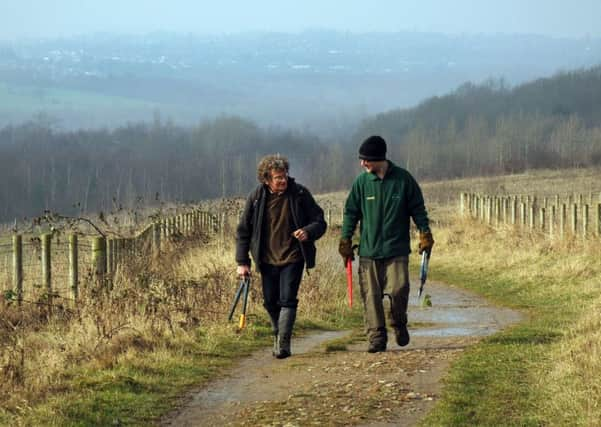Sheffield schools invited to get back to nature


The reserve’s ranger, Nell Dixon, has extended the invititation to schools and other children’s groups in the city to come and visit the old sewage works and landfill site to see for themselves the wildlife that’s moved into the area.
Nell said: “We want people to realise what a beauty this site is, even though it’s kind of hidden away.
Advertisement
Hide AdAdvertisement
Hide Ad“Children are so excited when they come here, they ask so many questions. One child found a caterpillar two inches long, and he couldn’t believe this bright green creature with a mohican haircut would grow up to be a moth.”
Richard Pearson, from the Shire Brook Valley Conservation Group, said: “I grew up near here, but we never came down as youngsters because it was just a sewage works then. But now there’s such a variety of habitats, with ponds, streams, wildflower meadows, and it’s so accessible. It’s smashing.”
Much of the valley, near Crystal Peaks, was designated as a nature reserve in 1999, and after years of pond building, tree planting, scrub clearing and meadow planting by the city council along with the Shire Brook Valley Conservation and Heritage Groups, local ranger Tom Broadhead says the site now feels like countryside, with butterflies, bats, birds of prey and even grass snakes thriving in the woods and meadows.
“What people think of as a ‘natural’ environment rarely occurs naturally any more in England after centuries of human activity,” said Tom.
Advertisement
Hide AdAdvertisement
Hide Ad“Woodland left to its own devices would become a dense mix of native and introduced species and brambles, for example.
“With the reduction of grazing animals like deer, you actually have to put a lot of work in to maintain what should be a natural environment.
“A lot of people from this side of Sheffield drive out to the Peak District, when all this is within walking distance. But why drive out to somewhere miles away when you’ve got this on your doorstep?”
Primary or secondary school teachers or youth leaders interested in the Tuesday learning sessions - supported by Natural England - can contact Nell Dixon on [email protected] or call 0114 2356348.